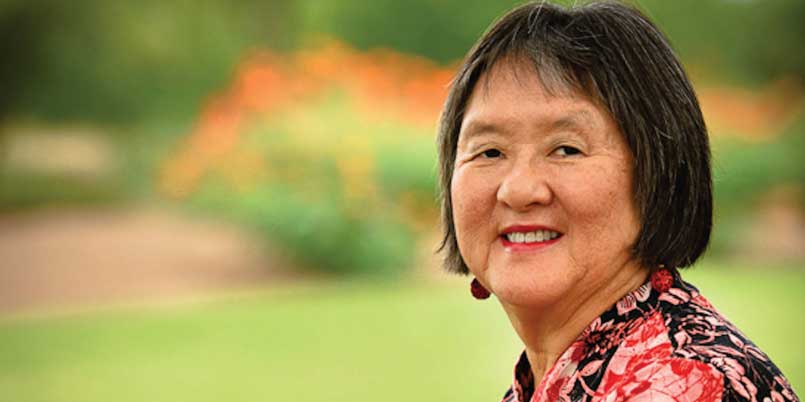The Reiki Precepts are not commandments, but tools for training the mind to return to the present moment. Spoken morning and evening, they help us pause, breathe, and respond with awareness instead of habit. Over time, they become part of our nervous system and our way of being. I’ve found that practicing the Precepts daily brings me back to myself—and to what truly matters. I hope Phyllis’s words inspire you to begin again, just for today.
Editor’s Note: The following reflections are excerpted directly from the words of Phyllis Lei Furumoto, Lineage Bearer of Usui Shiki Ryoho, spoken during her 2018 webinar “Living the Precepts – Reiki as a Way of Life.” In her unique voice — wise, humorous, and deeply human — Phyllis shares how the Reiki Precepts guided her life and invites us to enter a personal, transformative relationship with them through daily practice. Watch the full webinar
When I first heard the Reiki Precepts from my grandmother, Hawayo Takata, I was skeptical. We were standing on a hotel curb in Puerto Rico waiting for a ride — me, pacing anxiously, and her, calm as ever. I thought my job was to get her to her lecture on time. She looked at me and said gently,
“Just for today, do not worry.”
And I remember thinking, “Easy for you to say.”
That was my first taste of the Precepts. I didn’t understand them yet, but something began.
Forty years later, I can say this: The Reiki Precepts have walked with me, changed me, and become part of who I am.
When we recite the Precepts each morning and evening — as Mikao Usui recommended — something begins to settle in us. It’s not magic. It’s rhythm. It’s relationship. And it’s choice.
“One of the precepts always applies,” I discovered.
If you’re confused, ask: Which one applies now?
They become your compass.
And no, it’s not about perfection.
I’ve had my share of tantrums — like the time I couldn’t stream the Olympic opening ceremony. I stomped around, frustrated and helpless. Then I remembered:
“Just for today, do not anger.”
It didn’t stop the anger, but it gave me a way to come back to myself. I apologized to my partner. I chose again.
“It’s about being conscious of your anger… seeing that there’s nothing you can do about something, and then — poof — you let it go.”
Some students worry about getting the wording “right.” English can feel clunky compared to the flow of Japanese. But as my dear friend Hyakuten Inamoto reminded me,
“Even if you don’t understand the language, it still works.”
Recite them in your own tongue — feel their vibration.
“Each language has its own resonance,” and your voice matters.
Don’t treat the Precepts like commandments. They are not laws to obey but reminders in the moment. As you grow in your practice, they begin to arise on their own — not from your head, but from your being. That’s embodiment.
“Reiki is an embodied practice — not just something we do, but something we become.”
So begin. Write the Precepts out. Post them on your fridge. Say them aloud each morning. Say them again before bed. Let the rhythm settle in. Let them seep into your life.
And above all:
“The purpose of the Precepts is to allow ourselves to be happy… to live a peaceful life… to be natural human beings.”
That is the invitation. That is the practice.
And that is what will change your life.
Watch the full webinar here: Living the Precepts – Reiki as a Way of Life








